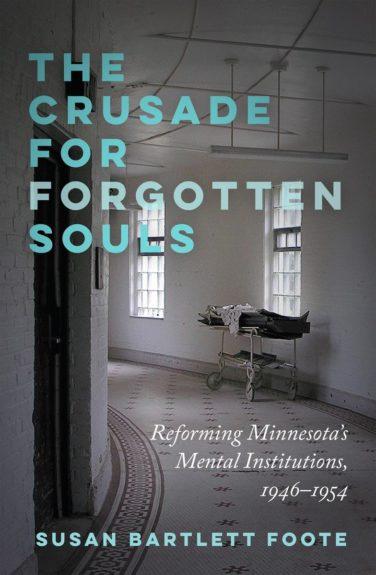2018: Souls were not ‘forgotten’ due to the work of many people
Access Press
6/10/2018 by Access Press Staff
A new book details the story of the reform movement that laid the groundwork for a modern mental health system in Minnesota. The Crusade for Forgotten Souls recounts Minnesota’s reform movement that broke the stigma surrounding mental illness, publicized the painful truth about the state’s asylums and resulted in the first legislative steps toward a modern mental health system.
The book, which was published earlier this year by University of Minnesota Press, is by Susan Bartlett Foote, an emeritus professor at the University of Minnesota School of Public Health. She is also a past chairperson of the St. Paul Heritage Preservation Commission. Foote is married to former U.S. Sen. Dave Durenberger, who is remembered for his efforts on health care reform at the federal level. Her work brings a deep perspective on public health history to the book.
In the book, Foote describes the early advocates for compassionate care of the mentally ill, and how they fought for change. The hero of the story is Engla Schey, who worked in state institutions in the 1940s and 1950s. Foote’s diligent research brought Schey’s story to life.
Schey kept detailed journals. She wrote about her own experiences as a worker and gave insight into what state institutions were like when electroshock therapy, strapping residents to chairs in deplorable conditions were the norm. The journals were drawn on extensively for the book and bring the words of workers and residents to life.
Schey, the daughter of Norwegian immigrants, transformed from low-paid state hospital worker to effective and compassionate advocate and mental health rights activist. In her time, the residents were called "inmates."

They were among more than 12,000 Minnesotans with mental illness living in seven state institutions. Many people were in state hospitals because their families simply didn’t want them, or because they had behaved in a way that others found to be unacceptable.
Schey’s work led to action to improve conditions, The Crusade for Forgotten Souls. The campaign was remarkable in that it was spearheaded by many ordinary people. People from faith-based institutions, hospital workers and self-advocates joined together to make a difference.
Foote’s former father-in-law, Unitarian minister Arthur Foote, was also deeply involved in the movement for change. Arthur Foote served at Unity Unitarian Church in St. Paul from 1945 to 1970.
Another central figure in the reform movement who was central to their cause was Luther Youngdahl, Minnesota’s Republican governor from 1946 to 1951. Youngdahl challenged his own party on the issues of institutionalization and called for reform.
The book is available online and in bookstores. Learn more at www.upress.umn.edu

